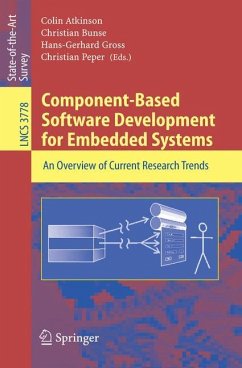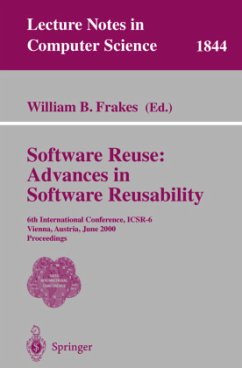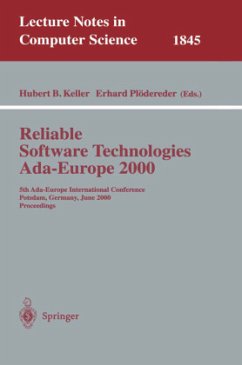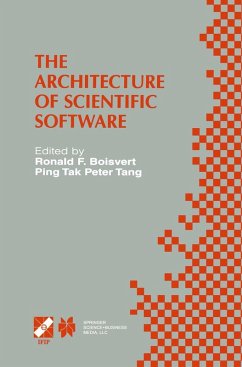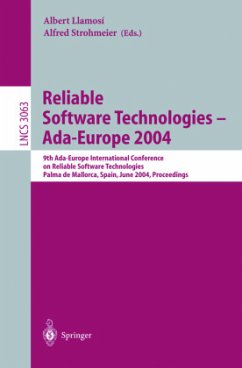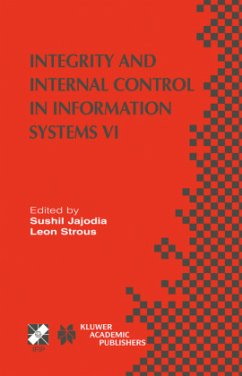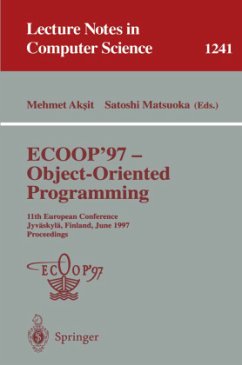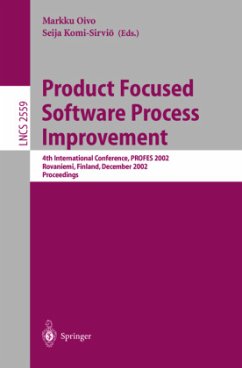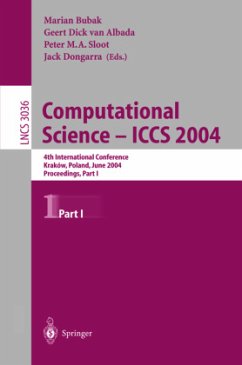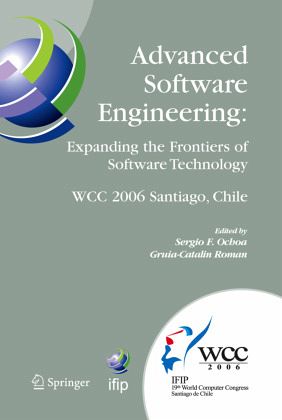
Advanced Software Engineering: Expanding the Frontiers of Software Technology
IFIP 19th World Computer Congress, First International Workshop on Advanced Software Engineering, August 25, 2006, Santiago, Chile
Herausgegeben: Ochoa, Sergio F.; Roman, Gruia-Catalin
Versandkostenfrei!
Versandfertig in 6-10 Tagen
38,99 €
inkl. MwSt.

PAYBACK Punkte
19 °P sammeln!
This volume presents proceedings from the 19th IFIP World Computer Congress in Santiago, Chile. The proceedings of the World Computer Congress are a product of the gathering of 2,000 delegates from more than 70 countries to discuss a myriad of topics in the ICT domain. Of particular note, this marks the first time that a World Computer Congress has been held in a Latin American country.
Topics in this series include:
- The 4th International Conference on Theoretical Computer Science
- Education for the 21st Century- Impact of ICT and Digital Resources
- Mobile and Wireless Communication Networks
- Ad-Hoc Networking
- Network Control and Engineering for QoS, Security, and Mobility
- The Past and Future of Information Systems: 1976-2006 and Beyond
- History of Computing and Education
- Biologically Inspired Cooperative Computing
- Artificial Intelligence in Theory and Practice
- Applications in Artificial Intelligence
- Advanced Software Engineering: Expanding the Frontiers of Software
Topics in this series include:
- The 4th International Conference on Theoretical Computer Science
- Education for the 21st Century- Impact of ICT and Digital Resources
- Mobile and Wireless Communication Networks
- Ad-Hoc Networking
- Network Control and Engineering for QoS, Security, and Mobility
- The Past and Future of Information Systems: 1976-2006 and Beyond
- History of Computing and Education
- Biologically Inspired Cooperative Computing
- Artificial Intelligence in Theory and Practice
- Applications in Artificial Intelligence
- Advanced Software Engineering: Expanding the Frontiers of Software
On behalf of the Organizing Committee for this event, we are glad to welcome you to IWASE 2006, the First International Workshop on Advanced Software Engineering. We hope you will enjoy the traditional Chilean hospitality and, of course, please tell us how we can make your visit a pleasant and useful experience. The goal of this Workshop is to create a new forum for researchers, professionals and educators to discuss advanced software engineering topics. A distinctive feature of this Workshop is its attempt to foster interactions between the Latin-American software engineering community and computer scientists around the world. This is an opportunity to discuss with other researchers or simply to meet new colleagues. IWASE 2006 has been organized to facilitate strong interactions among those attending it and to offer ample time for discussing each paper. IWASE 2006 attracted 28 submissions from 14 countries, 8 of them outside Latin-America. Each of the 28 articles was reviewed byat least three members of the Program Committee. As a result of this rigorous reviewing process, 13 papers were accepted: nine fiill papers and four work-in-progress papers. These papers were grouped in four tracks; software architecture, software modeling, software development process and experiences in software development.





